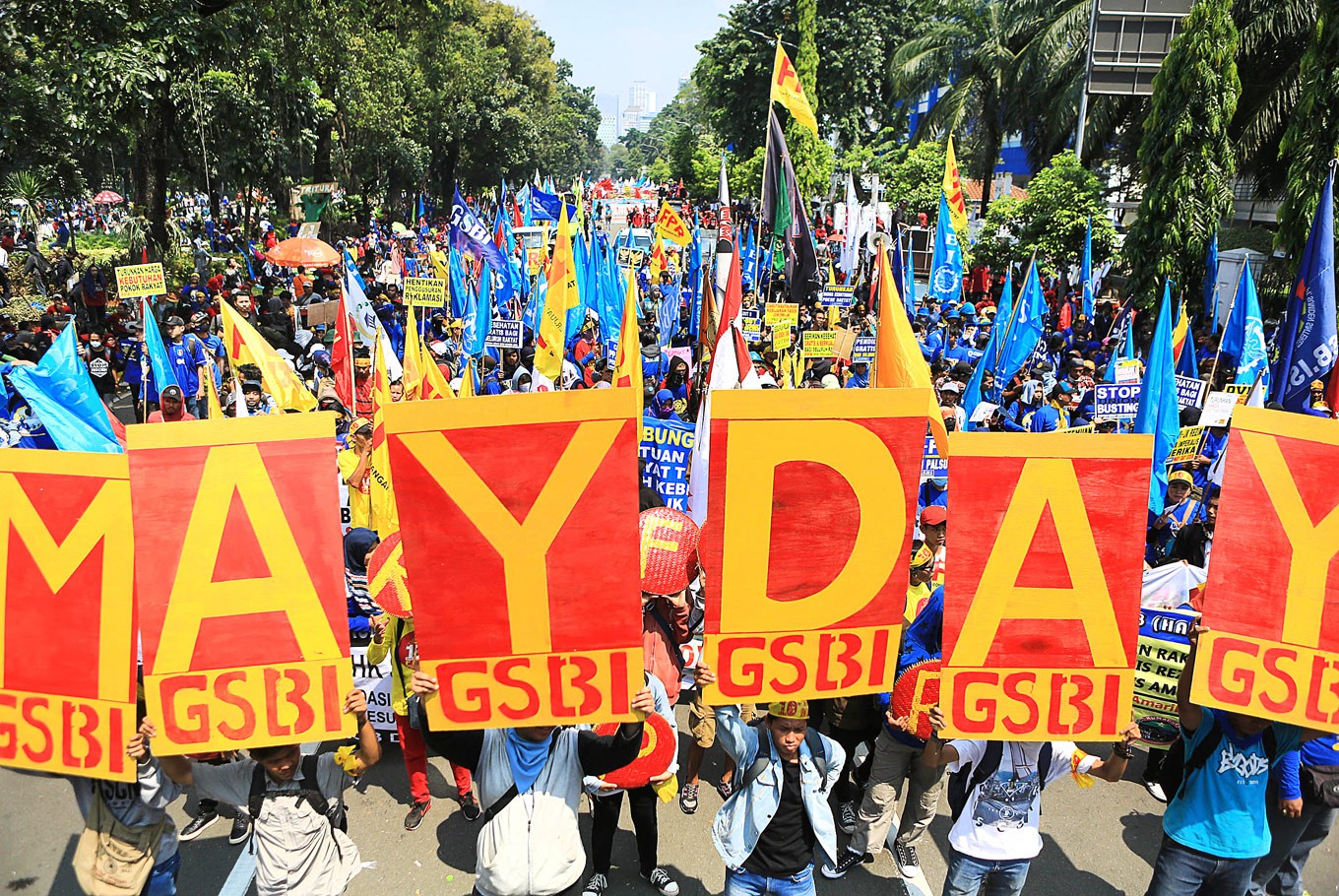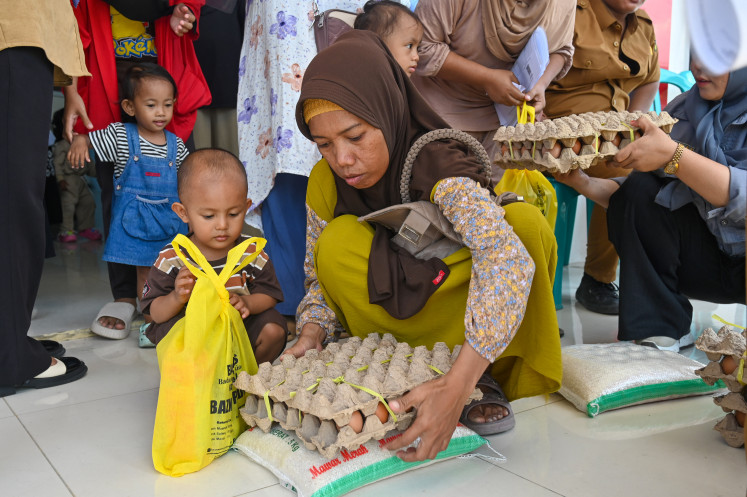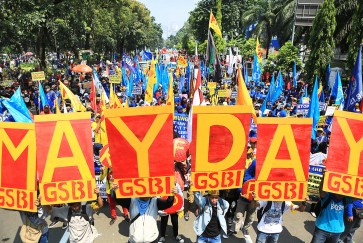Popular Reads
Top Results
Can't find what you're looking for?
View all search resultsPopular Reads
Top Results
Can't find what you're looking for?
View all search resultsMay Day: Reflection on job quality
As earning quality in Indonesia is poor, many workers have more than one job to make ends meet. This applies not just for those in the informal sector, but also those in the formal sector.
Change text size
Gift Premium Articles
to Anyone
M
ay Day, or International Labor Day, is celebrated on May 1 to commemorate a rally in 1886, when hundreds of thousands of union workers across the United States protested against poor working conditions, including long and exhausting working hours. The event led to the realization of the 8-hour working day, a legacy that most of us should be grateful for.
More than a century after the protest, the world is seemingly flabbergasted by Industry 4.0, the fourth industrial revolution. Like a double-edged sword, with all these hopes and hypes come the worries.
Many people are anxious because substantial numbers of jobs are predicted to vanish. The future of work as we know it might be disrupted and at peril, experts have told us.
Nonetheless, in the Global South, the second and third industrial revolutions are yet to be fully experienced. Few workers in the hemisphere can expect to work nine to five and retire after 20 or so years of tenure, a privilege their North counterparts experienced during the era of Industry 2.0 and 3.0. This is because de-industrialization, instead of industrialization, tends to be on the rise.

















